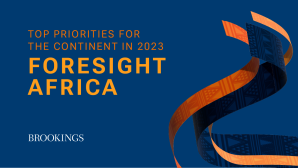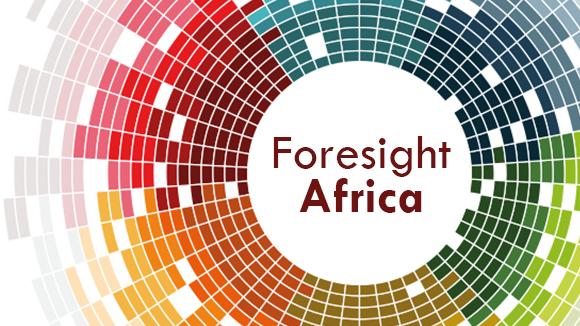Below is a viewpoint from the Foresight Africa 2023 report, which explores top priorities for the region in the coming year. Read the full chapter on education and skills.
 Adoption of Fourth Industrial Revolution (4IR) technologies in sub-Saharan Africa could not only bring substantial economic growth and welfare benefits, but also social and economic disruption, including widening inequality if countervailing policies are not adopted, as discussed in our recent report. With a high share of the labor force working informally—a trend expected to continue for several decades—Africa’s education and industrial policies need to strike a balance between encouraging the private investment necessary to create new formal jobs using advanced technology and ensuring that all new labor force entrants have the basic skills and infrastructure to make an adequate living.
Adoption of Fourth Industrial Revolution (4IR) technologies in sub-Saharan Africa could not only bring substantial economic growth and welfare benefits, but also social and economic disruption, including widening inequality if countervailing policies are not adopted, as discussed in our recent report. With a high share of the labor force working informally—a trend expected to continue for several decades—Africa’s education and industrial policies need to strike a balance between encouraging the private investment necessary to create new formal jobs using advanced technology and ensuring that all new labor force entrants have the basic skills and infrastructure to make an adequate living.
Rapidly growing labor supply and the challenges of structural transformation suggest that majority of new entrants to the labor force will find work as employees or working for themselves and their families (on farms, or in informal microenterprises). And while the pool of young African professionals in the IT sector is growing rapidly, the sector still employs less than 1 percent of the African labor force. For example, professional developers represent about 0.4 percent of Africa’s non-agricultural workforce, or 716,000 people with a job growth of 3.8 percent—only slightly higher than the population growth. To be more productive, young people not entering the IT sector need better access to (i) higher-quality primary and secondary education, including development of problem-solving and foundational literacy, digital, and STEM skills and (ii) access to cheaper mobile phones and tablets, mobile internet, and digital services to develop their farms and businesses or to search for available wage employment. Providing an inclusive job creation platform for these workers through public investment in foundational skills and internet access should remain the spending priority.
African countries will also need some highly skilled workers with high-quality postsecondary education to adapt and use new technology. How should these important skills be built? Sub-Saharan Africa countries already spend about 4.5 percent of their GDP on education (including both public and private expenditures), but education systems are often inadequate to meet the needs of current students, much less those about to enter the system. Furthermore, the cost per student at African universities is higher than other developing countries. The African Union is suggesting that member countries spend another 1 percent of GDP on developing STEM skills at the secondary and post-secondary levels. Where could this money come from in today’s fiscally constrained environment? African countries face tough choices. We argue that the priority for additional public spending should be on improving primary and secondary education to improve skills for all new entrants.
Where could this money come from in today’s fiscally constrained environment? African countries face tough choices. We argue that the priority for additional public spending should be on improving primary and secondary education to improve skills for all new entrants.
Improving access and the quality of tertiary education are still priorities, but policies should encourage private sector partnerships, including aggressive policies to attract more private investment in tertiary education, and encouraging public universities to partner with tech companies, philanthropic development organizations, and NGOs to upgrade tech training programs in order to meet projected needs for high-skilled labor. For example, South Africa’s Ministry of Communications and Digital Technologies has partnered with the digital learning platform Coursera to offer free courses to young South Africans in areas such as data science, digital marketing, artificial intelligence, coding, and app development.
The skill needs of a 21st century economy are much broader than digital skills or engineering. Improvements in AI technology have revealed the importance of socioemotional skills for secondary and tertiary graduates, another area where African education systems need substantial improvements.
The experience of the OECD countries, especially the U.S., suggests that 4IR technology is not an inherently benign change agent. Despite its positive impact, unequal employment and earnings outcomes have been observed. African countries cannot—and should not—avoid 4IR technology given the potential to accelerate economic transformation. Some factors—such as the labor saving, skill bias of these technologies—are outside of African countries’ control. But education policies can still contribute to an inclusive transformation if the focus remains on a cost-effective education system for all.
The Brookings Institution is committed to quality, independence, and impact.
We are supported by a diverse array of funders. In line with our values and policies, each Brookings publication represents the sole views of its author(s).










Commentary
Foundational skills for a more inclusive Fourth Industrial Revolution (4IR) in Africa
August 28, 2023